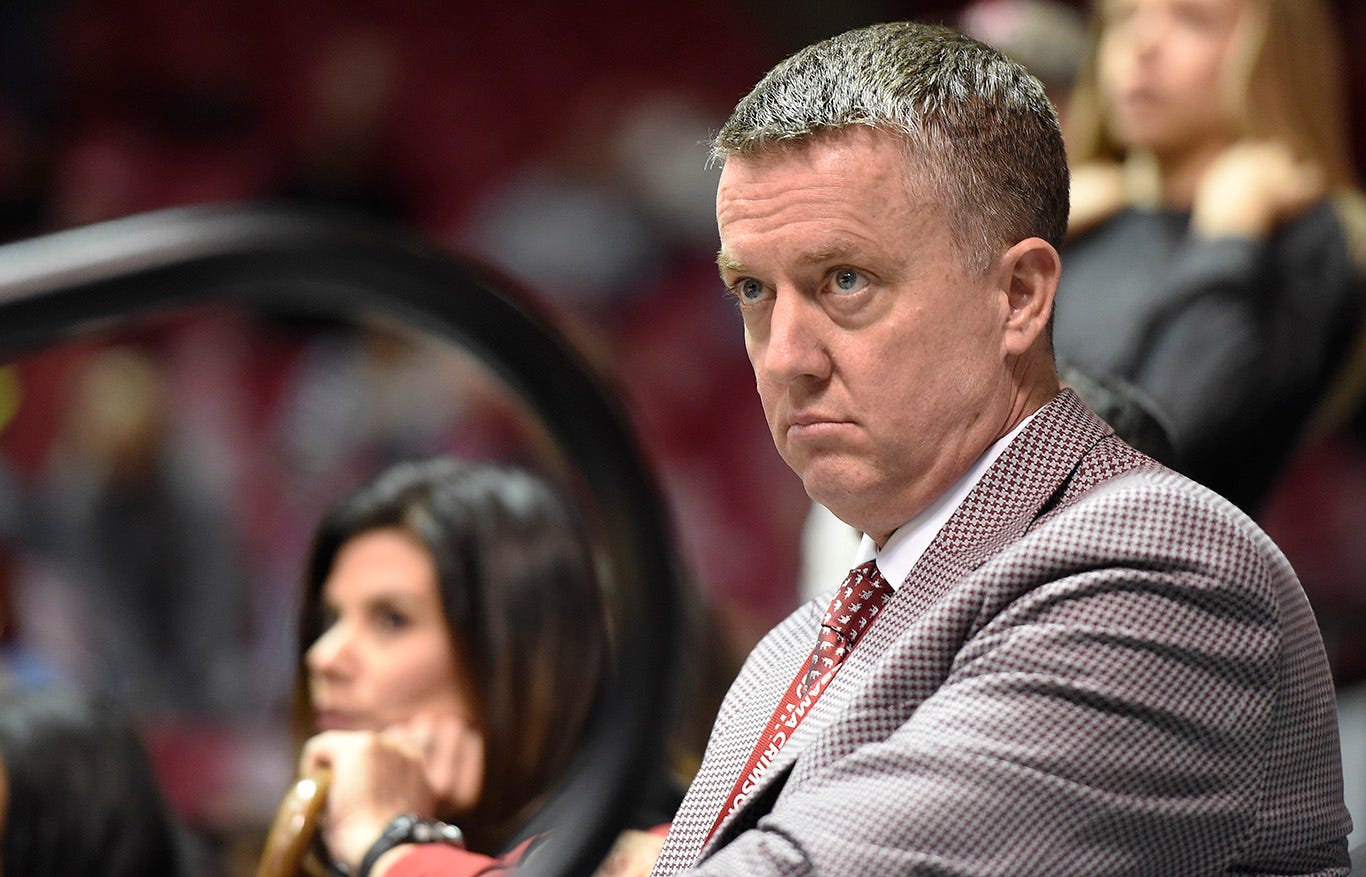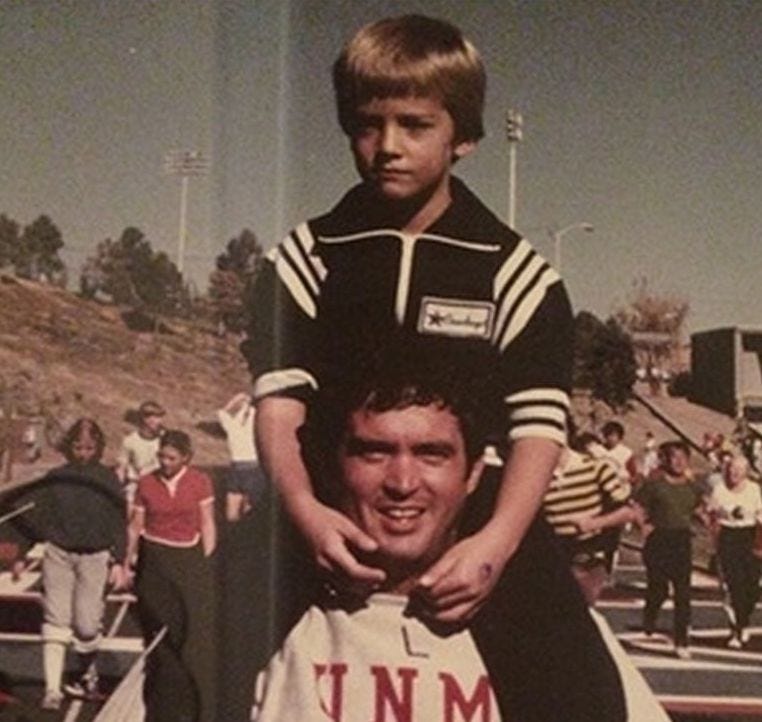Canzano: Alabama AD Greg Byrne sounds off on the SEC, Pac-12 and working with Nick Saban
A Q-and-A with Alabama AD.
Greg Byrne is the athletic director at the University of Alabama. He previously worked in the same job at Arizona and Mississippi State. But he got his start in college athletics administration at Oregon and Oregon State, where he served early in his career as an associate AD.
What are the key differences between the Pac-12 and SEC? What is it like to work alongside Alabama football coach Nick Saban? And what are the biggest challenges an AD faces in today’s world?
Byrne graduated from Eugene’s Sheldon High School and, later, received his degree from Arizona State. His wife, Regina, grew up in Junction City. They have two sons, Nick and Davis. His father, Bill, is a former athletic director at Oregon, Nebraska and Texas A&M.
Greg Byrne went 1-on-1 with me here:
Q: You’ve previously worked in the Pac-12 and SEC now for a while… from the inside-out what makes those conferences different?
Byrne: Both are great conferences with outstanding institutions and fertile recruiting footprints.
The SEC's tagline of “It Just Means More,” is one of the most appropriate marketing slogans that has ever been created. You have multiple generations of fan bases throughout the SEC that make a difference in the support of its programs. It’s a significant part of the culture. You rarely hear about fall weddings in the SEC footprint because you plan your year around football season.
The Pac-12 has passionate fan bases that care deeply about their universities, but there are not as many multi-generation fans. You will hear people planning activities during the fall (weddings, vacations, etc.) that impacts planning around football season. It's just a different approach.
Q: You’ve talked over the years about the connection an athletic director can have with athletes on campus… what’s the best part of that relationship?
Byrne: I love watching 18-year-olds come into our program and watch them develop into 22-year-olds. It’s challenging to get to know them all, we have more than 600 at Alabama, but you do your best and try to express a culture of caring about who they are. Pre-COVID, Regina and I would have each team — minus football because of how big it is — to our home for dinner to get to know them better. I’m around our football student-athletes a lot, so that helps the connection. We plan on having the teams back to our home in the fall.
One of my other highlights is that college athletics is one of the few things that still brings people together from all different backgrounds. We often check our differences at the door and come together to work, develop, support and compete together. We learn that it is okay to have different opinions and beliefs and instead of dividing us we can learn and grow with one another.
Q: What makes Nick Saban successful?
Byrne: Coach is the most focused and structured person I have ever been around. He has high expectations for himself and everyone around him. Every detail is planned out and almost every situation is anticipated on the front end. Coach and his wife, Ms. Terry, also do an incredible job giving back to the community and supporting so many organizations and people. He’ll go down as one of the most successful coaches of any sport in our nation’s history. It’s an honor to work with him on a daily basis.
Q: If you weren’t an athletic director what career path would you have taken?
Byrne: I had interest in coaching high school basketball and teaching. I still may teach when I retire from college athletics.
Q: Your dad was a long-time athletic director at Oregon, Nebraska and Texas A&M… what did you learn from watching your father work?
Byrne: I was very fortunate growing up around college sports. We went and watched his teams compete throughout the year, and I learned about the innerworkings of what it took to be successful in college sports, which translates to what it takes to be successful in life. I saw the commitment needed to recruiting, academics, compliance, budget management, fundraising, etc. I also saw the need to create a vision that everyone could rally behind to move forward.
My dad received the most attention in our home because of what he did, but I also learned a great deal from my mom who was, too, a great leader. She was a successful school principal and later a college dean.
Both of my parents taught me to treat people with dignity and respect. They showed me a strong work ethic and a humility that I needed to keep growing and evolving.
Q: Favorite movie?
Byrne: “Forrest Gump” — I love the innocence of Forrest and blending in the significant moments in our history throughout the story. Also love the connection to Alabama… I must have known I’d end up here.
Q: Two ADs jump in the same elevator and can iron out only one problem facing major college athletics on the ride… what’s the subject of discussion?
Byrne: I have to say two things — NIL and how to keep a broad-based program with the constant litigation that we are under.
Q: Your predecessor, Bill Battle, signed a long-term deal with Nike that runs through 2025 and was priced significantly below market value. Alabama has out-performed the deal and will land a likely windfall in 2025. How important are these kinds of deals to the financial health of Alabama athletics?
Byrne: To be fair, when Bill Battle signed our current agreement, it was at the top of the market. He deserves credit for that. What we didn't know was coming were the new agreements that Texas, Ohio State and Michigan were able to obtain because of the aggressive stance that some of Nike’s competitors took at that point in the market. Nike has been a great partner for the University of Alabama, and we certainly want that to continue in the future. I also think it is fair to recognize the historic success, that is almost unprecedented, when our current agreement is redone. For Alabama to have the ability to compete at the highest levels, our shoe and apparel agreement is a very important part of our ability to succeed.
Q: Alabama football gets a lot of attention, what other program on your campus do you wish more people watched closely?
Byrne: We are fortunate at Alabama that if we have success in any sport, our fans will follow and support. We lead the nation in softball attendance and often in gymnastics attendance. Our men’s basketball team just went to back-to-back NCAA tournaments for the first time in a long while. Men’s and women's track and field is performing at a top 5-10 level. Women's swimming just finished fourth in the country and the men’s team regularly cracks the top 10. We have won team national championships in men’s and women’s golf, softball, gymnastics and of course football. We tell our coaches and student-athletes that we want to be good in whatever we do. Last year, we finished seventh in the Learfield Directors’ Cup, which was our highest finish in our department’s history. Our goal going forward is to be in top 10 every year.
Q: Work-life balance is always a big topic of conversation… how do you manage that when you’re running an athletic department of Alabama’s profile?
Byrne: To be honest, I stink at it. Working in college sports is a lifestyle, not a job. When you have 21 teams, 600+ student-athletes, 375 employees, thousands of donors, hundreds of thousands of fans and the responsibilities that go along with managing all of those entities it doesn't leave you a lot of free time. I must say that I am fortunate to work with a great staff that works tirelessly as well. That is the case at Alabama, just like it was at Arizona and Mississippi State.
I am usually up by 5:15 a.m. and arrive at the office by 6:15 a.m. I work out, read, use an app called Vision Pursue, and try to catch up on email. I try to avoid meetings before 9 a.m. so I can have some balance in the morning. I have been doing intermittent fasting, so I only drink water and black coffee until noon. It was challenging at first, but I really like how it makes me feel. My wife, Regina, introduced me to a book titled, “The New Rules of Aging Well,” and that has been very helpful.
When I have a night at home, which isn't often, I make sure I put my phone away, stay off electronics and engage with Regina (our boys are grown and out of the house). She has been a rockstar throughout our journey together, and we wouldn't have been able to have the success that we have had without her incredible support.
I appreciate all who have supported, subscribed and shared my new independent endeavor with friends and family. If you haven’t already — please consider subscribing. Thank you for reading.






We got to know Greg and Regina while he was still working at Oregon. Very authentic and caring people. And it’s easy to trace the thread of his career success when thinking back on the leadership qualities he exhibited as a young fundraiser.
Thanks for chasing him down and giving us this Q&A, John. Another example of a home grown (state of Oregon) success.
Yes!…Play to Win in Life; eg intermittent fasting 😎